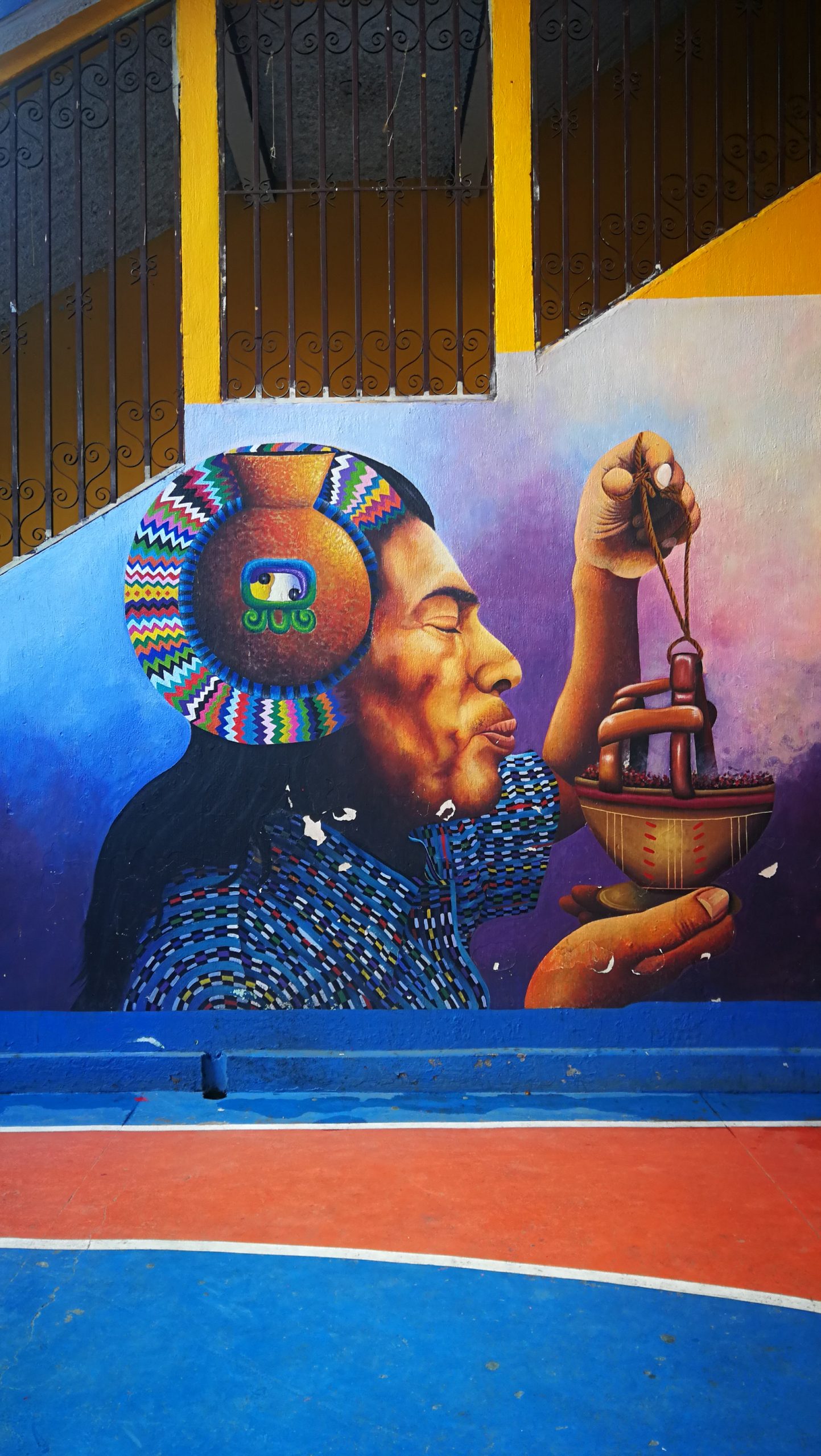Every time a story is retold, it comes alive and evolves like a feral creature. This slightly shocking, though intriguing, event I am about to recount taught me not only a few things about myself, but also highlighted what might happen at the intersection of systems. I have been living in the wilderness of Guatemala for over three years now. Strangely enough, the pandemic enabled me to work consistently online from the jungle, offering counselling to clients from around the world, as our physical locations became irrelevant during Covid. My former house was located in a labyrinth of mysterious back alleys and dead ends, enveloped by a little chicken farm on one side and an informal animal husbandry site featuring ducks, geese, wild dogs and even a pig at some point. On one occasion I was attacked and bitten by my neighbour’s little vicious dog. When I politely and decisively informed my neighbour standing behind the fence that I got bitten, she brushed it off, stating that “Le gusta carne blanca” (SP. “The dog likes white meat”). I was flabbergasted. I took a deep breath, drawing on my Integrating Adult Ego State (Tudor, 2003) as much as I could, and said to my neighbour that I felt scared. She repeated, “Le gusta carne blanca, carne extranjera” (SP. “The dog likes white meat, foreign meat.”).

I was a piece of meat in her eyes, a foreign specimen, a tasty snack for her dog. Again, I took a deep breath and looked my neighbour straight in the eyes and said that I was uncomfortable, that I was not a piece of meat for consumption and that I wanted us to treat each other with mutual respect and care. This is what we have to do in the “I’m OK – You’re OK position”, right? As tempting as the invitation to the game might be, the idea is to stay in one of the five positive functional modes (Temple, 1999), draw boundaries when necessary, and express our needs directly. The neighbour reluctantly apologized, and we parted on politically correct terms. Thank God my Adult was around to continue running the show. I could almost hear the Adult voice, the voice of a meta-perspective, so useful in the field of transactional analysis, inwardly asking, “How come she is so good at biting with words?”
Let’s think a little further about why my neighbour wanted to treat me like a piece of white meat. There was a broader context that came into play. I was a white male, growing up in a society where I felt safe, with years of expensive education and therapy that boosted my self-confidence. On my side, there was a supportive Cultural Parent (Drego, 1983) of transactional analysis that gave validity to my feelings and thoughts, which I experience as internal safety in the Parent and a sense of hope in my Child. Being white (Naughton & Tudor, 2006) would provide me with a certain authority, derived from belonging to what is mistakenly seen as the norm.

Given the colonial past and the brutal history of persecution of the indigenous people of Guatemala, my neighbour would have carried painful memories, anger, and resentment, in and out of awareness. Unfortunately, as a woman of Mayan Indigenous Kaqchiquel descent and with a darker skin tone, she would have been assigned less power by the highly stratified Guatemalan misogynistic society. It is likely that my neighbour was often objectified. Perhaps she treated me as she had often been treated. In her Child, she might carry her repressed fear, humiliation and anxiety that had seeped transgenerationally (Noriega, 2004) from her ancestors since the time of European colonization. Not to mention everything that comes from institutionalised racism that still prevails in Guatemala

Thus, the dog became a vehicle for cultural projections and transferences, clearly communicating what was not said. On the one hand, our interaction was personal; on the other hand, it showed the collision between the contexts that shaped our respective cultural frames of reference (CFR). The CFR is defined as “a subsystem of both the personality and the frame of reference of the individual. It is the primary source of a person’s intergroup identity and social status. It provides each person with many types of social cognitions and categories by which responses during exchanges or encounters can be integrated into ego positions.” (N. James, 1994, p. 206). Our CFR is shaped by the economic, historical, geopolitical, linguistic and institutional systems, which results in an underlying sense of separation known as ‘us’ and ‘them’.

One of the most important skills for transactional analysts is to learn to distinguish between what is ours and what is others’, without taking it personally. My neighbour and I found ourselves at the crossroads of systems, where two cultural frames of reference collided, resulting in an earthquake. My intergroup identity included notions of white privilege because I felt I had the right to expect a response that met my need for safety. On the other hand, the neighbour was affected by her environment, which marginalized her in many ways. We were both somehow blinded by the influence of our respective CFR, I was white, and she was dark. When we work cross-culturally, we must be able to unravel these complexities, to take a helicopter view of the projections that will inevitably arise in the process. The ground may shake, but we can train ourselves to keep a helicopter view and see the bigger picture.
Am I a loving hippie who wishes for the world to be a better place? Am I trying to free myself from feelings of culturally inherited white guilt? Perhaps the situation is very simple: I was bitten by a dog and the neighbour didn’t care. It is our skill as TA professionals to formulate hypotheses based on transactions. The more nuanced and critical our understanding, the more accurately we can understand the ulterior motives that communicate the themes of our life scripts. In other words, we need to jump into the helicopter each time and see the big picture so that we can make a map, while at the same time using a microscopic view to discover the granular details of the scripts that contribute to our destiny. That is where the awareness lies that gives rise to freedom and autonomy.
REFERENCES
- Tudor, K. (2003). The neopsyche: The integrating adult ego state. In C. Sills & H. Hargaden (Eds.), Ego states (Key concepts in transactional analysis: Contemporary views) (pp. 201-231). London: Worth Publishing
- Susannah Temple (1999) Functional Fluency for Educational Transactional Analysts, Transactional Analysis Journal, 29:3, 164-174, DOI: 10.1177/036215379902900302
- Drego, P. (1996). Cultural Parent Oppression and Regeneration. Transactional Analysis Journal, 26(1), 58–77. https://doi.org/10.1177/036215379602600111
- Naughton, M., & Tudor, K. (2006). Being White. Transactional Analysis Journal, 36 (2), 159–171. https://doi.org/10.1177/036215370603600208
- Gloria Noriega Gayol (2004) Codependence: A Transgenerational Script,
Transactional Analysis Journal, 34:4, 312-322, DOI: 10.1177/036215370403400404 - James, N. L. (1994). Cultural Frame of Reference and Intergroup Encounters: A TA Approach. Transactional Analysis Journal, 24(3), 206–210. https://doi.org/10.1177/036215379402400308
